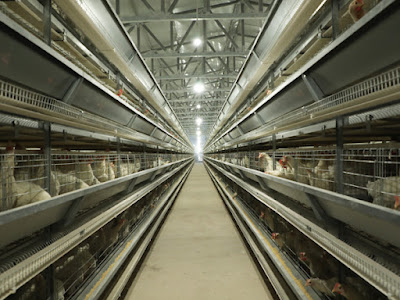Poultry farming should follow the principle of "health is more important than prevention, prevention is more important than treatment, and health and prevention are combined". In the management process, we should pay attention to the following 7 aspects.
1. Change the concept and strengthen the disinfection. Regular disinfection of the external environment of the house and cleaning of feeding equipment. And check drinking utensils at any time to avoid dirt.
2. Improve the disease resistance of poultry itself. Individuals with poor physique not only increase the cost of breeding, but also affect the production performance. Therefore, healthy breeding must choose high-quality chicks to win at the starting line. At the same time, even high-quality chicks have poor thermoregulation ability, high oxygen consumption, and weak disease resistance, and the immune system develops the fastest, and has to withstand the stress of multiple vaccine immunizations, resulting in Immune organs are damaged to varying degrees, which can easily lead to infection of immunosuppressive diseases.
3. Strengthen immunity and improve the immunity of animals themselves. Vaccine immunization is one of the most effective measures to prevent and control diseases, and it is also one of the main means to improve the non-specific immunity of poultry. However, when choosing vaccines and vaccine immunization programs, most farmers do not conduct experimental research on poultry flocks, and there is no scientific basis. In fact, when choosing vaccines, you do not necessarily have to choose imported products, but you must choose high-quality vaccines from regular manufacturers. The key is that the vaccines match the type of local epidemic strains.
4. Add mycotoxin adsorbent. At present, mold and mycotoxins have seriously polluted feed and feed raw materials, causing chronic poisoning of poultry, and causing diseases such as glandular gastritis, muscle gastritis, and air sac inflammation in poultry. According to years of experience, adding toxin adsorbents (such as Demyoga) in the feed can effectively reduce the incidence of glandular gastritis and reduce the incidence of airsacculitis to varying degrees.
5. Improve the anti-infection ability of the mucosa. The secretion of poultry mucosa not only has the effect of expelling foreign bodies, but also has a large number of immune factors and beneficial bacteria, which can kill pathogenic microorganisms and protect the integrity of organs.
6. Regularly add health-care additives. Raising chickens should develop in a direction that is in line with nature, consider chickens from the perspective of chickens, and let chickens live in a natural and comfortable environment. Post-recovery period and other stages) to supplement the required nutrients, long-term addition of compound probiotics to regulate intestinal flora balance, improve feed conversion rate, improve eggshell color, improve eggshell quality, improve egg production rate, increase egg production and prolong At the same time of peak egg production, improve the uniformity and disease resistance of the flock.
7. Manage staff and feeding management files. The archives of large-scale farms must be authentic, complete and scientific, and there must be a special person to sort out the records and keep them. The farm manager should personally supervise the implementation and carefully check the work every day, so that there are loopholes to be supplemented in time. Finally, professional and technical personnel conduct analysis, scientifically calculate the factors that determine the success or failure of the batch of breeding, and report to the superiors after improvement.
Therefore, only through the above comprehensive management measures can the comprehensive economic benefits of raising poultry be improved.




